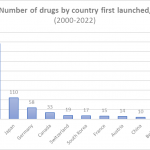Astrocytes Restrict Access to Amyloid-β Plaques in the Aging Brain
Astrocytes respond to amyloid-β aggregations in the aging brain by becoming more inflammatory, causing them to gather around the misfolded protein plaques. This clustering hinders the microglia’s ability to clear the protein aggregates efficiently. However, researchers have discovered that targeting plexin-B1 can regulate this crowding, allowing microglia better access to remove amyloid-β. This promising research could lead to more effective anti-amyloid therapies in the future.
A groundbreaking discovery in Alzheimer’s disease research sheds light on a potential method to slow down or halt disease progression. By delving into the interaction between reactive astrocytes and the plexin-B1 protein in Alzheimer’s pathophysiology, researchers have unveiled new treatment avenues. This innovative approach focuses on decreasing plexin-B1 levels to improve the brain’s clearance of amyloid plaques, a defining characteristic of Alzheimer’s disease. Reactive astrocytes play a vital role in regulating the clearance process around these plaques, altering how other brain cells can eliminate the harmful deposits.





